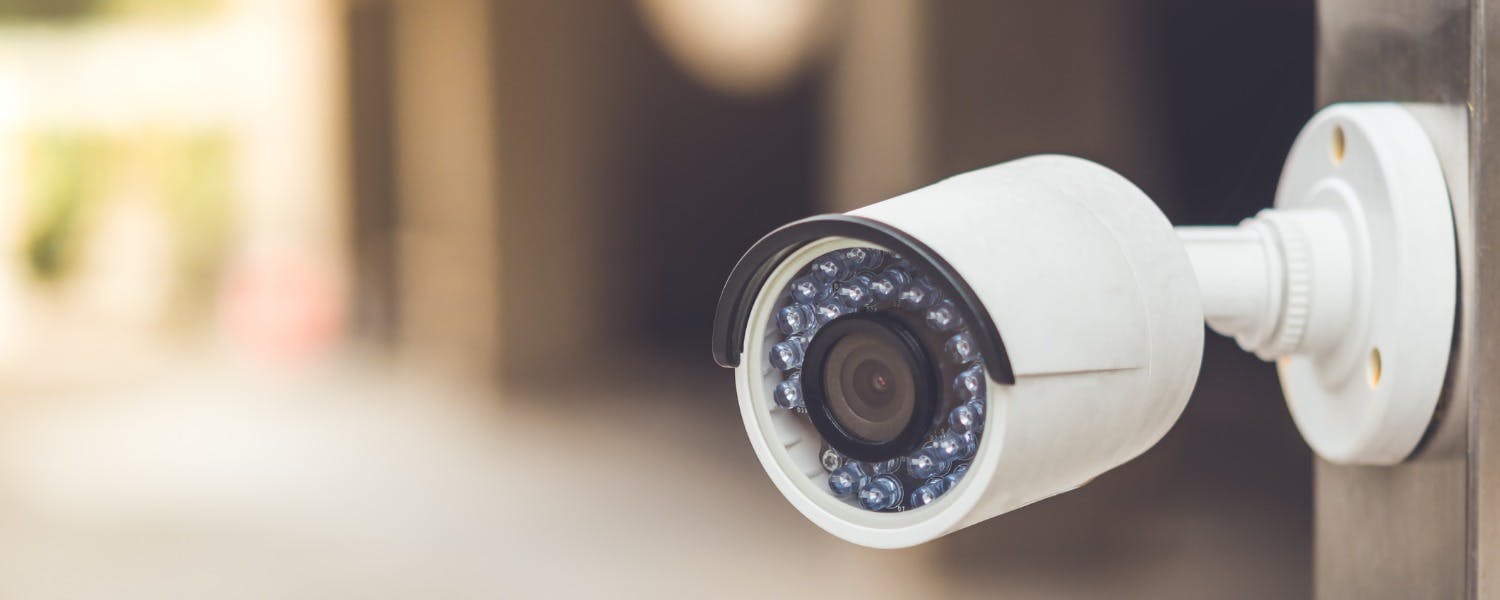Property Management
What Every Property Manager Should Know About Security Cameras
Last Updated Feb 1, 2021


Table Of Contents
Of course, you want to keep your property safe. But are you opening yourself up to legal liabilities when you use security cameras to accomplish that goal?
Installing security cameras in a house or apartment you’re self-managing might seem like a no-brainer. Especially today, when they are so affordable and easy to install. After all, the urge to protect the property and the people residing in it is a universal trait, shared by landlords and renters alike. But beware: there are huge legal implications when it comes to installing security cameras on your property.
Right to Privacy
When a resident is behind a closed door, they have a reasonable expectation that they’re in a private, safe space. In fact, in that kind of circumstance, they legally have a right to privacy. Anything you do that intrudes on that right — including setting up a security camera — is against the law.
In fact, it’s one of the rights guaranteed in the Bill of Rights: According to many legal scholars, the Third Amendment, which explicitly prevents soldiers from taking up residence in a civilian’s home, implicitly “suggests the individual’s right of domestic privacy” — this according to the National Constitution Center. The Fourth Amendment is even more explicit, guaranteeing “The right of the people to be secure in their persons, houses, papers, and effects, against unreasonable searches and seizures.” Though these Amendments were initially drafted as a check on governmental intrusion into the private lives of its citizenry, it also applies to civil matters.
This doesn’t mean you can’t install a security camera altogether: it just means you have to be very careful that you aren’t videoing your residents while they’re inside the house — or the apartment — itself. If you own a building with multiple units in it, you might be allowed to install security cameras in shared spaces, for example in hallways or stairwells or entryways that any resident can access. But we advise you to check with an attorney well-versed in the federal and state laws that might be applicable.
You can probably also install cameras that look out onto areas of the property that are visible to the public in general — the front yard, for example, or the driveway. But installing a camera in the backyard, where residents could reasonably assume they are out of view of the public eye, is illegal.
You own a home.
We have someone to ❤️ it.
So, Are Security Cameras Worth It?
They can be, if you’re hyper-careful when installing them. Doorbell cameras, for example, are a great way of protecting your property, your residents, and yourself: because they look out onto public-facing land (i.e., the front yard), they keep you safe from violating your tenant’s right to privacy by filming indoors. Just be sure to purchase a product that allows you to turn off any audio recording functionality (Ring cams, for example).
There are other solutions that can provide an extra layer of security that are definitely worth considering, in particular wireless alarm systems. Unlike their wired forefathers — the kind of alarm systems your parents might have had — these new systems are much cheaper to install, because you don’t need a professional to be laying wires all over the house. In fact, many of them can be self-installed. Also, like Ring doorbell cams, they are often smart systems that communicate directly to the homeowner’s cellphone, so you’re constantly aware of what’s going on with your property. Some of our favorites can be purchased through these links.
You can also install motion-sensitive security lights; the simple shock of the light suddenly turning on is enough to scare off many an intruder. Another cheap option: non-functional cameras installed in places where potential intruders will see them. The mere threat of being recorded might be enough to turn the thieves away.
Transparency is Key
No matter what type of security system you end up installing, we recommend being fully transparent with any current and future resident about their security – and the security of the home in general. Conversations like these can communicate to your residents that you care about their safety and security — and, more broadly, about them as people — which makes it that much more likely they’ll reciprocate and treat you and your property with the utmost respect.
Finally, we recommend consulting with a local lawyer who fully understands the nuances of applicable state laws. Though (as stated above) many of the laws we’re talking about here are Federal, there is often local legislation that has a bearing on the legality of using security cameras. That’s why talking to a good lawyer is the best way to mitigate (or eliminate) any potential risk.
Interested in learning more? Check out The Dos and Don’ts of Home Security in a Rental Property.

About The Author
Lucas Hanft
Lucas attended Yale University before becoming a journalist and working with brands to tell their story.




